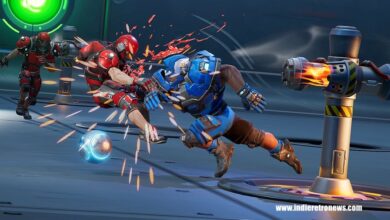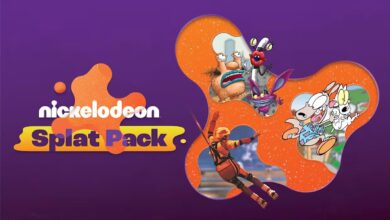Big THE SCHEME fans excited to play THE SCHEME for the first time.
Off the top, allow me to briefly mention a couple of actually-retro games that came out today: Snow Bros. Wonderland, (PC/Switch/PS) a fully 3D revival of Toaplan’s classic-don’t-at-me arcade action game and the first in-house production from Toaplan successor studio Tatsujin, and Madou Monogatari: Fia to Fushigi na Gakkou, (Switch/PS, Japan-only), a new entry in the classic, long-dormant Compile dungeon-crawler series and Puyo Puyo sister title Madou Monogatari, now developed by Sting, and the first one in decades to officially feature classic Sega-owned characters — it’s still a reboot with a new cast, art style and game systems, and the connections to the classic series may or may not be tenuous at best, but progress is progress.
ARCADE ARCHIVES
Fantastic Night Dreams Cotton
- Platform: Nintendo Switch, PlayStation 4
- Price: $7.99 / €6.99 / £6.29
- Publisher: Hamster / Success
What’s this? The first entry in Success’ signboard series of halloween-spooky horror-themed shooting games, originaly developed for Sega’s System 16 arcade hardware and distributed in Japanese and European arcades by Sega in 1991; the game spawned many sequels and was remixed and remastered for many different platforms, including the Sharp X68000, PC Engine CD, PlayStation. Neo Geo Pocket Color and contemporary platforms as Cotton Reboot, but this is the first truly authentic reissue for consoles and the second arcade reissue overall, following its inclusion on the recent Astro City Mini. Players control the self-absorbed witch Cotton on a somewhat unwitting quest to save her world from evil in the hopes that it’ll allow her to eat a bunch of her favorite candy; in addition to being armed with a forward shot and a ground bomb, Cotton can also hold and release the shot button to perform magic attacks, which change depending on the colored crystals collecting in each stage and can be modified by also holding the bomb button while casting. (Sega has no stake in this game and all their in-game notations have been scrubbed, so don’t look to this release as a sign that Sega might be hitting Arcade Archives any time soon.)
Why should I care? Cotton was not just a pioneer of character-centric shooting games but of being completely unafraid of pitching their quirky characters and dialogue as the primary draw, which may have seen antithetical to the arcade ethos at the time but was quickly adopted by game makers across many competing genres from that point forward. That said, the core shooting gameplay certainly goes beyond the perfunctory, so those who are more inclided to mash through the cutscenes will be left with a solid and reasonably challenging game with a surprisingly wide scoring system. (This release is also noteworthy for being Success’ first ACA title, and while their early arcade library isn’t exactly packed with juggernauts, there’s quite a lot of stuff in there that has never been reissued.)
Helpful tip: This is the first ACA release in a while to launch with really egregious errors: put simply, a lot of the music plays at strange speeds, but it’s something that can and will be patched in short order.
EGG CONSOLE
The Scheme PC-8801mkIISR)
- Platform: Nintendo Switch (worldwide)
- Price: $6.49 / ¥880
- Publisher: D4 Enterprise / Bothtec
What’s this? A side-scrolling exploratory action game with RPG elements, originally developed by a small team of independemt developers centered around the founder of doujin studio Onion Soft and published by Bothtec for the PC-88 in 1988. Players contril the king of the planet Rhea on a quest to liberate their world from the clutches of a sinister cult; in addition to jumping, shooting and collecting experience from defeated enemies and bosses, the player must explore the large interconnected flick-screen map in order to acquire items that will give them new traversal abilities that will allow them to further explore the map.
Why should I care? The Scheme’s composer Yuzo Koshiro, who at that time had just gone freelance after quitting Falcom, went completely overboard on the soundtrack by writing two entirely different sets of tunes: one for the stock FM hardware, and one exclusive to the Sound Board II expansion module, both of which are available through this reissue (with some audio bugs, it must be said). As such, the game’s place in history has been cemented as a mere footnote in the Koshiro discography, and while it’s by no means an unsung classic, i do think it’s unfairly dismissed as as irrelevant game with a weirdly popular soundtrack: it looks nice and runs very smoothly, and it’s certainly noteworthy for being so unabashedly Metroid-y at a time when the exploratory sidescroller format was still nascent. This would’ve been a European microcomputer classic in its day, and you can take from that comment what you will.
Language barrier? Minus an extremely short ending text crawl, there’s almost no text in the game, and it’s all in English.
NINTENDO SWITCH ONLINE
Novvember ’24 update: Donkey Kong Land and Donkey Kong Land 2 (Game Boy)
What’re these? The greyscale handheld companion titles to Rare’s popular Donkey Kong Country and Donkey Kong Country 2, respectively; while the first Land deviates significantly from Country in terms of world themes and level design, Land 2 a a broadly faithful conversion.
Why should I care? While the effort to adapt the CG sprites to Game Boy seems ultimately ill-advised, I do think there’s something to be said for just how much of the Country experience they were able to preserve on lesser hardware, and that these adaptations demonstrate that there was always an inherent quality to these games that persisted beyond any intrigue around the visuals.
Helpful tip: The out-of-nowhere, separate-drop release for these two games seems to suggest that Land 3 might just show up in a week or two, so if you’re specifically waiting on that entry, keep an eye out.
NINTENDO SWITCH ONLINE EXPANSION PASS
December ’24 update: Mercs, Toejam & Earl: Panic on Funkotron and Vectorman (Sega Genesis/Mega Drive)
What’re these? The Sega-developed and enhanced conversion of Capcom’s sequel to the hit overhead run-and-gun Commando, the Toejam & Earl followup that switched formats from roguelite to co-op exploratory sidescroller, and the BlueSky Software-developed shooting action game that tried, but did not succeed, to reinvigorate the Genesis in the same way Donkey Kong Country did for SNES>
Why should I care? This is the first NSO Genesis update in almost eighteen months, for one, so let’s just appreciate that they haven’t completely forgotten they have the ability to offer Mega Drive game (at a premium price tier, even). Onto the games themselves: Sega added a well-received RPG-esque arrange mode to MERCS that makes their conversion a valid counterpart to the widely-available, full-fat arcade original, and Vectorman is a perfectly cromulent western-style jump-and-run that employs a lot of subtle and extremely unsubtle production techniques to ensure that every inch of the game is doing something visually that the Genesis ostensibly couldn’t do. As for Toejam & Earl 2, while the switch of formats was a transparent and lazy edict from Sega to broaden the audience, one cannot say that the devs didn’t attempt to preserve the low-energy putzin’-around nature of the original within the new format, and there are many elements of this game that matriculated into the recent revival game. (It should also be said that the push to make the series bigger did work: the sequel outsold the original, so perhaps this is TJ&E to you or yours.)
Useless fact: There are big disclaimers on the promo materials for this drop that emphasize the fact that the Play it Loud! sweepstakes mentioned on the Vectorman box art have not been valid for thirty years, so don’t expect to come away with a cash prize for beating this one. (In fact, the ROM used for Sega’s own reissues came from a regular ol’ retail copy purchased by the producer of Sonic Gems Collection, who was then obligated to beat the game themselves in order to ensure they didn’t accidentally stumble upon a copy with a winning prize screen at the end.)
OTHER
The Epyx Games – Sports Collection
- Platform: Nintendo Switch (worldwide)
- Price: $11.99 or equivalent
- Publisher: Imagine Software / Pixel Games UK
What’s this? An emulated compilation of eight sports games from California Games devs Epyx, originally released for the Commodore 64 between 1984 and 1988; as with other Pixel Games collections, these games are presented with viewable manuals and #D-modeled boxes and offer a variety of screen filters, as well as save states.
Which games are included? In chronological order: Summer Games, Summer Games II, Winter Games, World Games, Championship Wrestling, California Games, The Games – Winter Edition and The Games – Summer Edition.
Why should I care? Popular internet miasma seems to have pushed California Games to the forefront but most all of these games were big hits for Epyx in their day, and represent the peak of multi-sports game adaptations produced during that era. (One mght also wish to argue that the multi-sports game format hasn’t necessarily progressed much since those days, either.)
Helpful tip: If this listing provoked vague memories of California Games already being reissued on Switch recently, know that the previous reissue was specifically the Lynx version, whereas this is the C64 original.
NOW YOU CAN JUST BUY ‘EM
Dino Crisis and Resident Evil Director’s Cut (PS Classics), available to buy on PlayStation, $9.99/ £7.99 each
Sony’s distribution of legacy PS Classics titles has been somewhat slipshod: newer versions were proposed to be accessible to all players at one point or another, be they owners of previous versions, PS Premium subscribers or regular customers, but it’s always a crapshoot as to whether those outside of PS Premium will actually get access to any or all of ’em. Two games that found themselves behind the subscription wall were Capcom’s beloved survival horror titles Resident Evil and Dino Crisis but, after mutch kvetching, they’v finally been liberated — ya wanna buy ’em, now you can buy ’em, and if you already own ’em, you could be able to reclaim them for modern systems.






